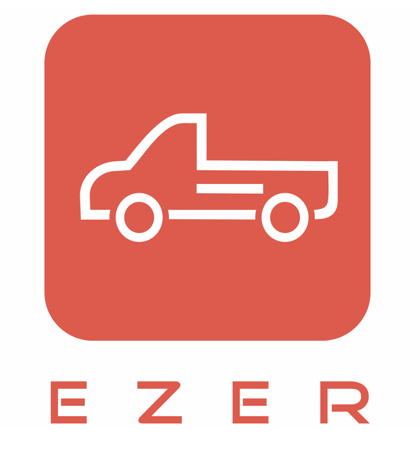The Pomona-based company based on UBER – except it moves freight instead of people – has helped move emergency medical supplies during the pandemic, according to Glenn Todd, its founder, and owner, and Gary Wlassak, its chief operating officer. EZER – a Hebrew word that means “to save” and “to be strong” – is still looking for investors and is considering a name change.
[Note: This is the latest in a series of periodic reports updating EZER and its progress as a start-up company since its first days in operation].
Q: You say COVID-29 has helped your business. How so?
GLEN TODD: In several ways. Not long after the pandemic started to get really big, we started picking up clients who needed to have PPE [personal protective equipment] delivered, most of the time to hospitals. I’m talking about gloves, sanitary wipes, respirators, ventilators. It’s been that way for at least three months, and it’s still going on.
GARY WLASSAK: You hate to think that you’re profiting off a tragedy, but the pandemic did play into what we do. It caused a lot of medical companies to have to make deliveries. Our business is up about 11 percent compared to last year at this time.
Q: When did you know that COVD-19 was going to be major, that it was not going to go away quickly?
GT: Very early on, and when we did we started to market it. We knew we could become an essential service. We used LinkedIn to get the word out. We started working with a couple of companies that needed to have [medical] stuff delivered.
Q: What are your thoughts on Prop. 22, which will be on the Nov. 3 ballot. If it passes, ride-sharing and food-delivery businesses will still be allowed to classify their drivers as independent contractors, not employees. It would give “gig workers” benefits such as employer-sponsored health insurance, overtime pay, and paid sick leave, which they don’t have as independent contractors. Uber, Lyft, Doordash, Postmates, and Instacart have spent a combined $110 million supporting the measure, according to one report. Your drivers are independent contractors. Is that measure a threat to EZER?
GW: We are delivering freight, not people. That makes what we do more of a federal issue, not a state issue, so it shouldn’t affect us one way or the other. Also, our pay scale is already above the one that Prop. 22 would create.
GT: Our drivers make a minimum of $38 per drive, based on a minimum of seven miles per trip. We’ve had drivers make $500 going from Ontario to San Diego. They’re paid very well.
Q: Uber and Lyft were threatening to leave California because of Prop. 22 before an appellate court said they could keep classifying their drivers as independent contractors while the matter is being decided. Do you believe they would leave such a large and lucrative market?
GT: I don’t know. It does seem like California does something every week trying to get businesses to leave. As for Uber and Lyft, of course, we’re watching both them, I think they’ve both been hurt by COVID-19.
Q: Is EZER profitable yet?
A: No, we aren’t. We still haven’t reached that point, but we’re getting close.
Q: When you started the business more than four years ago you said you thought you would turn a profit in one year. Are you starting to wonder if you will ever be in the black?
GT: No. I wouldn’t keep pouring my own money into it if I didn’t think it was going to be profitable. Before COVID-19 hit, there were some companies that were trying to do what we were doing. Now, I don’t know. But I still have confidence in what we’re trying to do.
GW: I would say we’re a lot closer now to being profitable than we were six months ago. A lot depends on how things go in the next six months. But I definitely expect us to be making a profit one year from now.
Q: The last time we spoke you were trying to line up investors. How has that turned out?
GT: We’re still working on that. I think that COVID-19 slowed down that effort. I can’t prove that, but it seems like a pandemic would keep people from wanting to invest money.
Q: Besides Southern California, what other markets are you in, and how many drivers do you have?
GW: We have about 220 drivers, and we’re in Phoenix, Houston, Las Vegas, Chicago, Minneapolis, and Miami.
Q: How difficult is it to establish a presence in an out-of-state market, and how do you identify which ones to target?
GW: Not very difficult. We rely on social media as we do in every market. We can establish ourselves and get something set up in about two weeks. There isn’t a market we don’t want to be in.
Q: Have you ever thought about a merger? Maybe Uber or Lyft would like to have a freight-hauling division.
GT: I doubt that, but yes, I have thought about a merger. I’m always open to that kind of opportunity. One thing I am considering is a name change.
Q: To what?
GT: I don’t know exactly, but I would like something that explains what it is we do. I’m not sure that EZER does that, that it says we deliver items, not people. Something simpler, like “We Deliver,” might work better.
Q: You started out helping people move from Lowe’s or Home Depot, then shifted to helping businesses move things. Are you still confident about that business model?
GW: Yes. I’ve been in the freight business for 30 years, so I know what it’s like. There are a lot of ups and downs, depending on how the economy is performing. COVID-19 happens to help us, but either way, you roll with the punches and keep delivering. And the last mile is always the hardest.
 IE Business Daily Business news for the Inland Empire.
IE Business Daily Business news for the Inland Empire.


